Mathematics
Subject Leader: Mrs E Warburton - warburtone@saintgeorgescofe.kent.sch.uk
Here at Saint George’s Primary Phase, we use Mathematics Mastery, Chris Quigley Education and provide personalised support to all our pupils throughout their Mathematics lessons. Having a high-quality mathematics education is an essential part of everyday life and is crucial to providing a foundation for a child’s future.
Intent
The 2014 National Curriculum for Maths aims to ensure that all children:
-
Become fluent in the fundamentals of mathematics
-
Be able to reason mathematically
-
Can solve problems by applying mathematics
-
Can solve problems actively by applying their mathematics in active mathematics lessons
At Saint George’s Primary Phase these key skills are embedded within our daily maths lessons across the school and are being developed consistently over time. We are committed to ensuring that all children will be able to recognise the importance of maths in the wider world. Children are provided with a variety of opportunities to develop and use their mathematical skills and knowledge confidently in their lives in a range of different contexts. It is the aim of Saint George’s that all children enjoy mathematics and are able to succeed at a level that challenges them and enhances both their practical and reasoning skills.
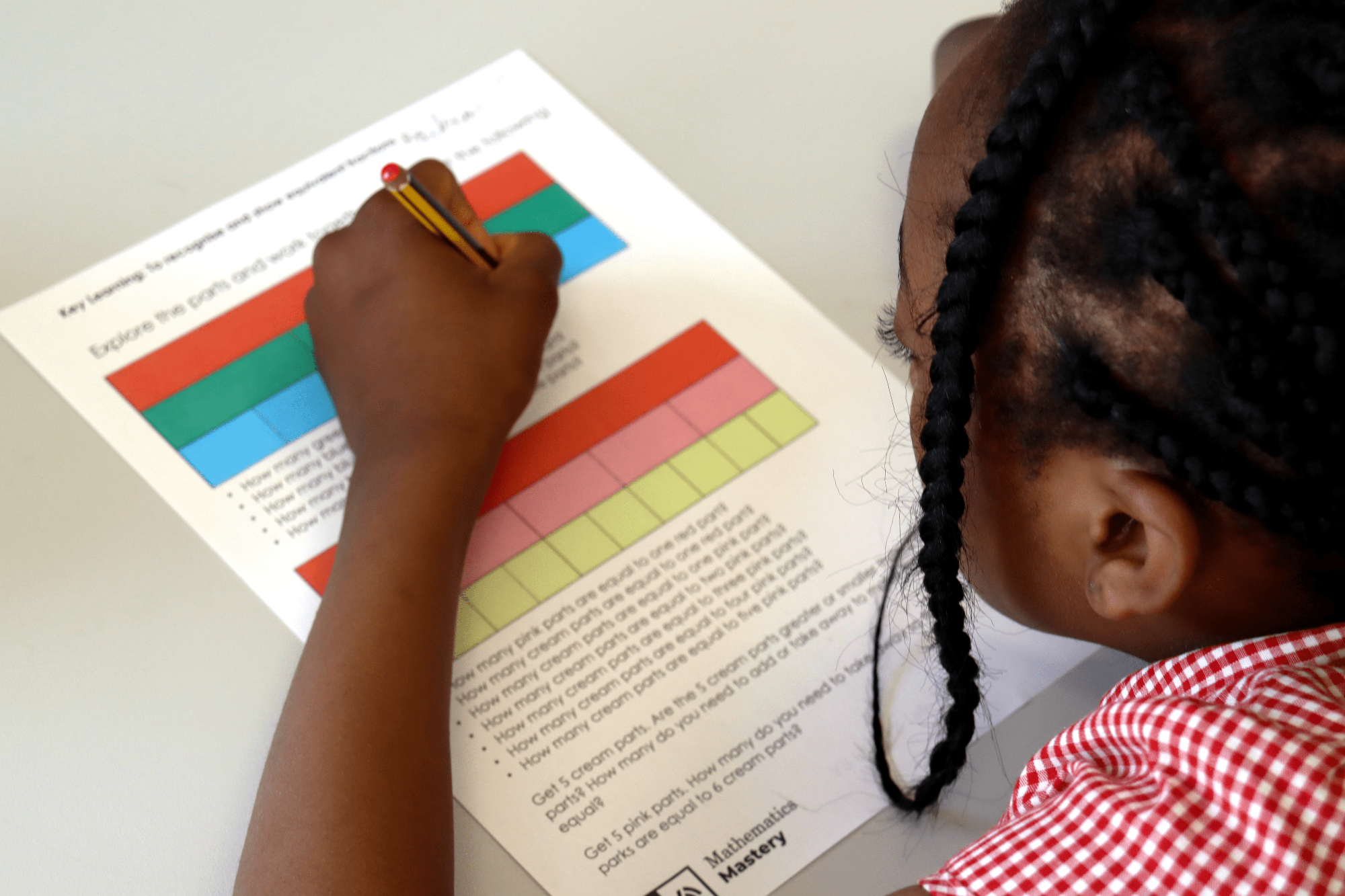
Implementation
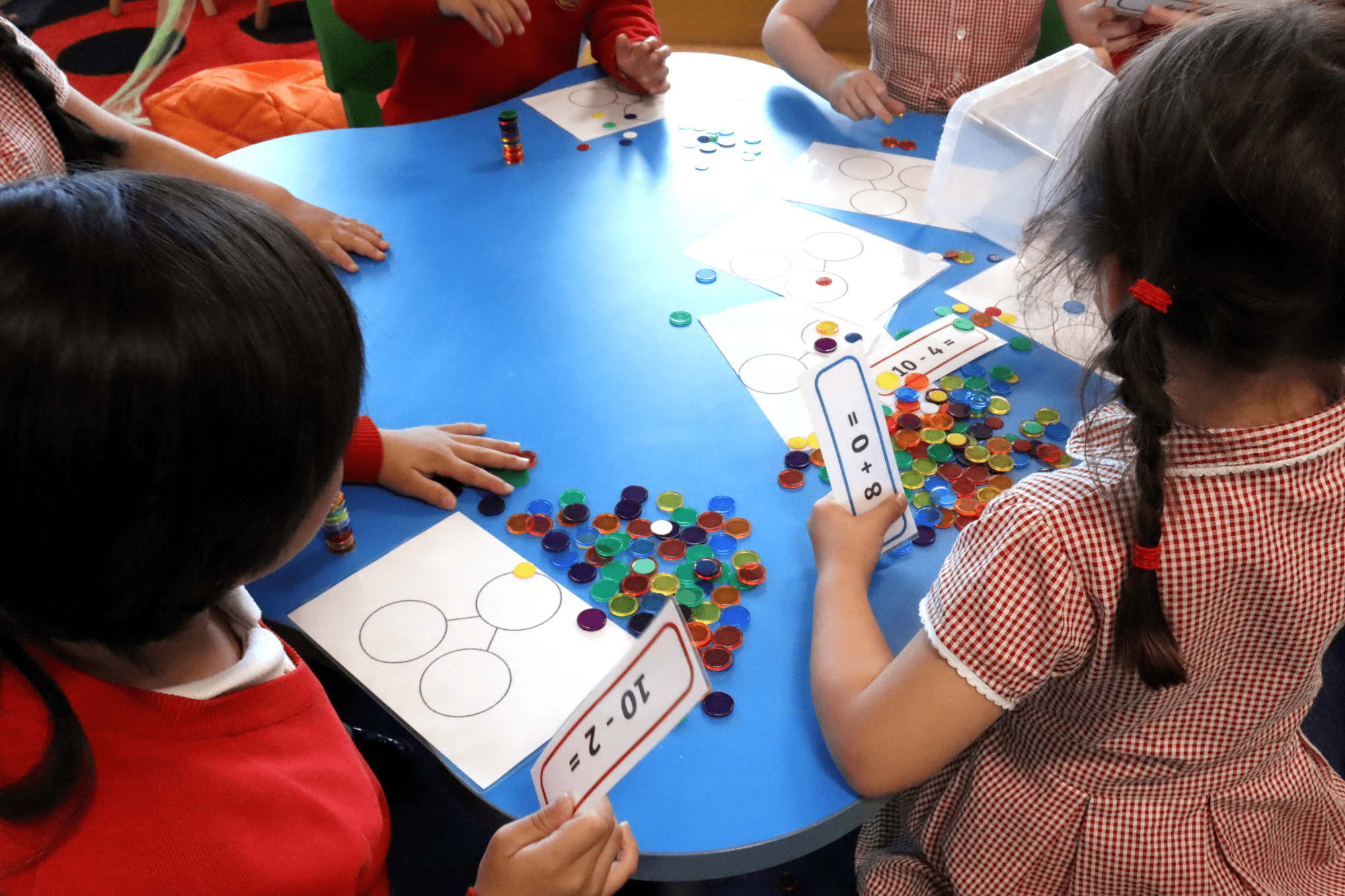
The content and principles underpinning the 2014 National Curriculum for maths alongside the maths curriculum at Saint Georges reflect those found in using high-performing education systems such as Mathematics Mastery and Chris Quigley Education.
Our curriculum is implemented through:
-
Teachers reinforce the expectation that all children will be capable of achieving their highest standards in mathematics.
-
Ensuring that the majority of children progress through the curriculum content simultaneously whilst differentiation is achieved by emphasising deep knowledge and mastery through individual support and focussed intervention.
-
High-quality teaching underpinned by methodical curriculum design supported by carefully constructed lessons and resources to ensure deep conceptual and procedural mastery.
-
Providing an environment where practise and consolidation plays a central role. Careful consideration is given to the design of a variety of opportunities for building fluency and understanding of the key mathematical concepts.
-
Teachers use precise questioning in class to develop conceptual and procedural knowledge and formatively assess children regularly to identify those requiring further support in order to keep up and those that require increased challenge to develop their skills more deeply.
To ensure whole school consistency and progression Saint George’s Primary Phase uses the DfE-approved ‘Ark Mathematics Mastery’ scheme alongside the Chris Quigley Education Milestones.
The Ark Mathematics Mastery programme is a whole-school approach to teaching mathematics. It aims to raise attainment for all pupils and close the attainment gap between pupils from low-income families and their peers. The programme aims to deepen pupils’ conceptual understanding of key mathematical concepts.
Compared to traditional curricula, fewer topics are covered in more depth, and greater emphasis is placed on problem-solving and on encouraging mathematical thinking. To help schools and teachers make this shift there is training and in-school support, an online toolkit for teachers, and collaboration amongst teachers delivering the approach. Ark Mathematics Mastery aims to improve the quality of maths teaching. Features of the programme that are informed by evidence include a systematic approach to mathematical language, frequent use of objects and pictures to represent mathematical concepts, and an emphasis on high expectations.
Impact
Saint George’s Primary Phase prides itself on its culture of supporting others, and we feel our chosen mathematical approaches support the pupils throughout the school to develop their collaborative and independent skills. In addition to this, pupils are encouraged to develop their skills of empathy and to celebrate the achievements of others through high-quality group and partner work.
To ensure that all children reach their full potential in maths whilst at Saint George’s, pupils will experience an active, inclusive, enjoyable, challenging, and safe mathematics environment in which to experiment, make mistakes and challenge their developing skills. Daily formative assessments inform planning and targeted differentiation to support and provide relevant challenges for each child regardless of their learning stage. These factors ensure we can continue to maintain high standards and expectations of all our pupils as the school continues to grow. High-quality teaching will continue to flourish and develop in order to maintain the current high standards and those we expect to achieve at the end of KS2 in 2025 with attainment reaching well above the national average and a high proportion of children demonstrating greater depth at the end of each phase.
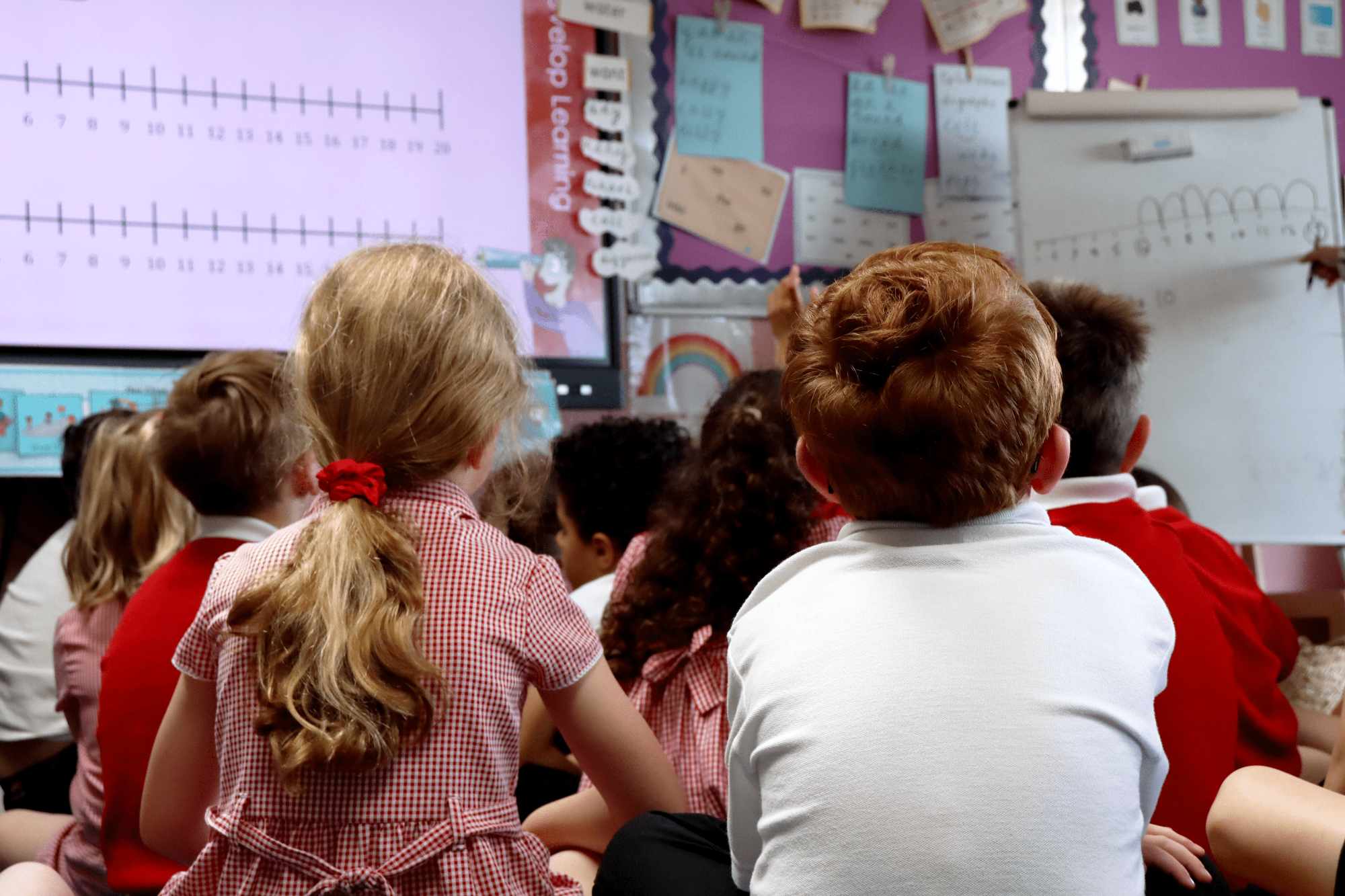
Mathematics in Early Years Foundation Stage (EYFS)
Within the EYFS at Saint George’s Church of England Primary Phase, adults will support children in developing and expressing their understanding of problem-solving, reasoning and numeracy in a broad range of contexts, through exploration and play. Adults will offer opportunities for these skills to be practised, in order to give children the confidence to use these skills in other areas of learning, as well as during future Mathematical activities.
The Mathematics area of learning includes seeing patterns, making connections, recognising relationships, working with numbers, shapes, space and measures, counting, sorting and matching. Children use their knowledge and skills in these areas to solve problems, generate questions and make connections across other areas of the EYFS. Mathematical understanding will be developed through whole class sessions as well as stories, songs, games and imaginative play.
Mathematical learning will be both practical and highly engaging for our pupils, both within the EYFS and across the rest of our school.
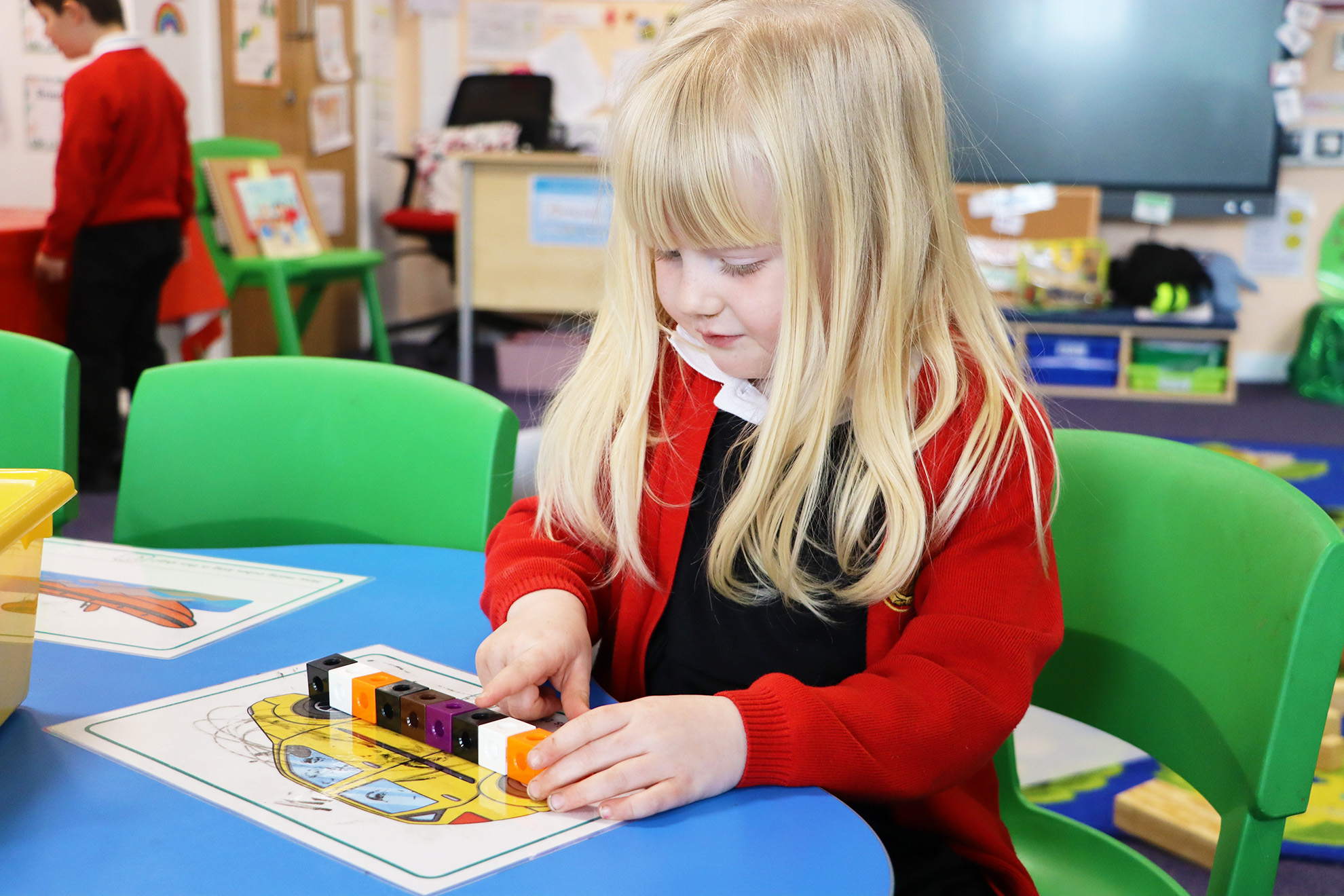
Mathematics in Key Stage 1 (KS1)
In Key Stage 1 at Saint George’s Church of England Primary Phase, children are supported in developing their fluency, consolidation and confidence.
Knowledge is embedded across the year: same-day interventions address misconceptions and reduce gaps, and weekly maths meetings (including visuals, singing and active participation) help with fluency, consolidation and confidence.
Daily maths lessons provide building blocks towards mastery and efficiency, with opportunities for both guided and independent practice. Children encourage each other to challenge themselves and support each other in their learning by asking and answering questions in whole-class discussions and when working in smaller groups.
We encourage mathematical communication, ensuring that the children are equipped with the language required to explain, justify and prove. We use a variety of good-quality resources in every lesson to support making connections and understanding different mathematical concepts. Pupils further challenge their mathematical thinking through opportunities to investigate and reason.
Using the National Curriculum, we focus on the development of
-
Fluency (using known facts to make connections with increasing speed, accuracy and efficiency).
-
Problem Solving (using and applying fluency and logic skills to break down complex problems, understand them and find solutions).
-
Reasoning (using mathematical language to clearly explain their thinking such as patterns, hypothesise and enquiries).
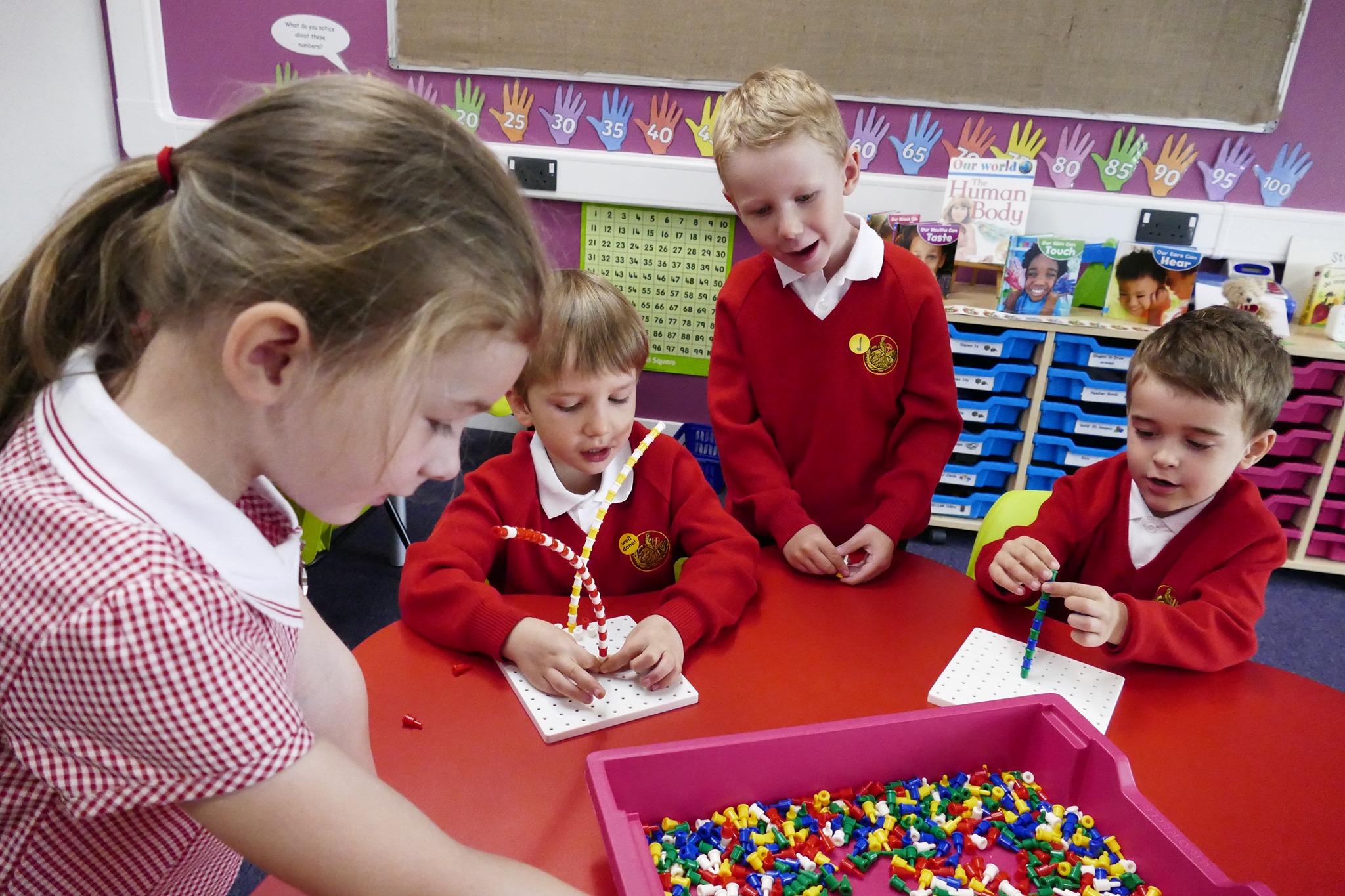
Mathematics in Key Stage 2 (KS2)
In Key Stage 2, we continue to use a cumulative curriculum that builds upon learning, allowing pupils to make deep connections across topics.
Multiple representations are used throughout to strengthen conceptual understanding. Children will continue to have access to a wide range of concrete resources in Key Stage 2 at every stage in order to consolidate a deeper understanding and ensure mastery of the more challenging concepts.
There continues to be an emphasis on deeper learning, and confidently using the correct language to communicate mathematical problems. We continue to use careful higher-order questioning to encourage students to build mathematical habits of mind.
Using the National Curriculum, we focus on the development of
-
Fluency (using known facts to make connections with increasing speed, accuracy and efficiency).
-
Problem-Solving (using and applying fluency and logic skills to break down complex problems, understand them and find solutions).
-
Reasoning (using mathematical language to clearly explain their thinking such as patterns, hypothesise and enquiries).
Assessments
Within KS1, formal assessment for mathematics includes termly arithmetic and reasoning papers. These are used to track progress and attainment both throughout the year and to inform end-of-year data. Statutory testing for mathematics includes the Key Stage 1 SATs assessments in Year Two (for both arithmetic and reasoning).
At KS2, formal assessment for mathematics includes termly arithmetic and reasoning papers. These are used to track progress and attainment both throughout the year and to inform end-of-year data. Statutory testing for mathematics includes the year four Multiplication Tables Check (prior practice is provided) and the Key Stage 2 SATs assessments in year six (for both arithmetic and reasoning).
SEND Information
We ensure that SEND and disadvantaged children are given the necessary support in class to fully access the Maths Curriculum and equal opportunities are given for all to be confident in approaching any problem within the world around them.
Remote Learning
At Saint George's C of E Primary Phase, we use MyMaths for remote/ at-home learning. Pupils and parents can access the website here: https://login.mymaths.co.uk/login
Extra Resources
Further Help
Fun Mathematics Games
